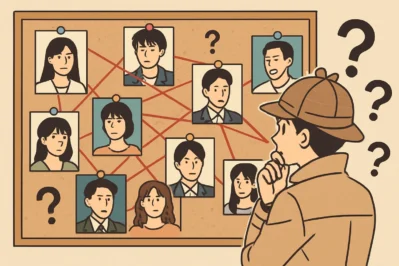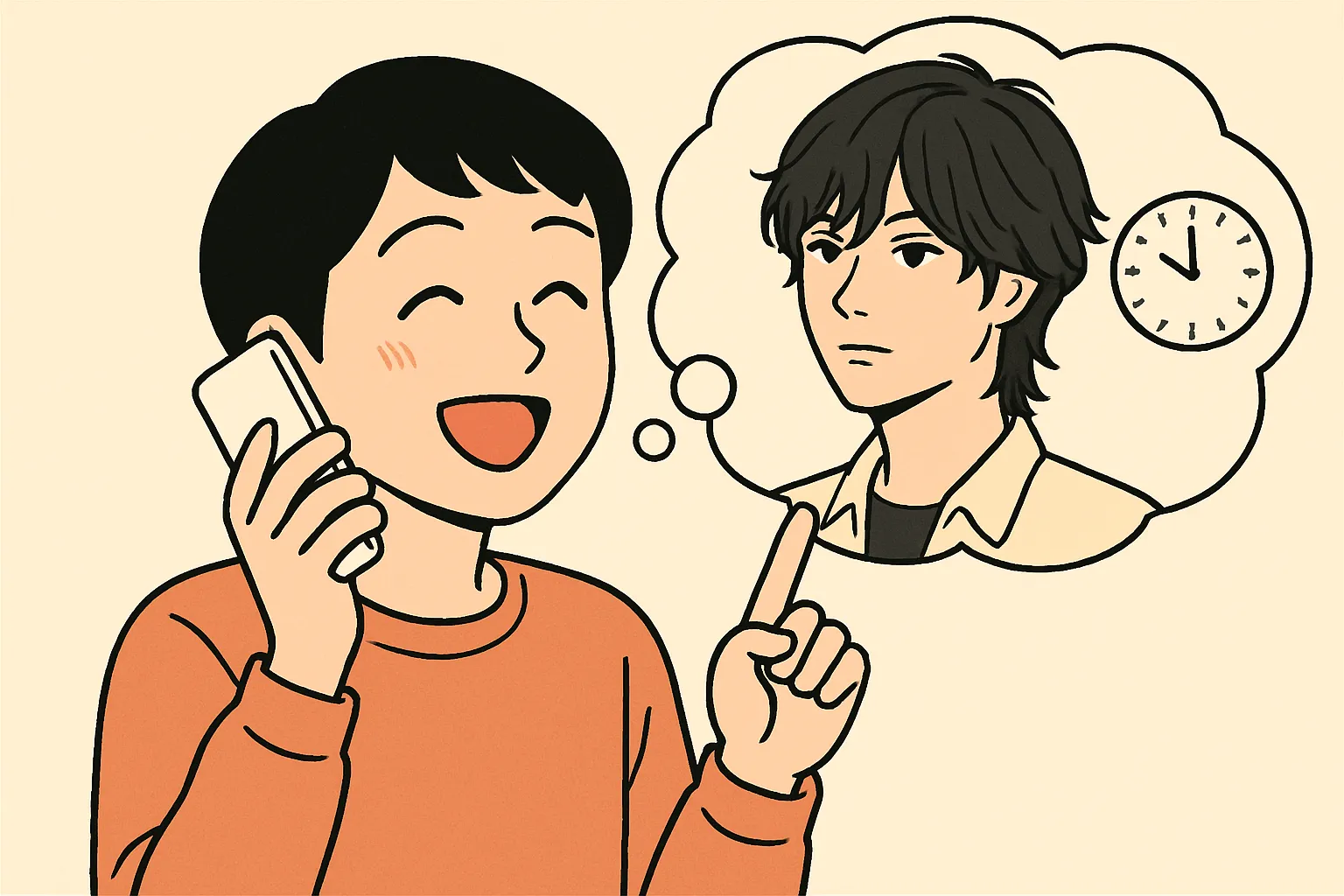Predict K-Drama Endings Like a Native!
Hello! It’s your favorite Korean booster, Maeil Hangul, here to upgrade your language skills!
Have you ever been so hooked on a K-drama that you can’t stop thinking about what will happen next? You discuss it with friends, read fan theories, and try to piece together all the clues. Today, we’re going to learn how to do exactly that, but in Korean! We’ll master the art of expressing hypotheses and speculating, which is perfect for predicting drama endings.
Lately in Korea, everyone is buzzing about the mystery-thriller drama “시간의 그림자” (Shadow of Time). The plot is so unpredictable that online forums are exploding with fan theories! Learning today’s expressions will not only level up your Korean but also let you jump right into these exciting conversations. Let’s get started!
Key Expressions for Your K-Drama Predictions
Here are three essential grammar patterns to turn you into a K-drama detective.
1. -(으)ㄹ 것 같다 (It seems/looks like…)
- Pronunciation [Romanization]: -(eu)l geot gat-da
- English Meaning: It seems like… / I think… / It looks like…
- Detailed Explanation: This is the most common and versatile way to express a guess or assumption. You can use it when you have some evidence or just a general feeling about something. It’s the perfect way to state your prediction!
- Attach -ㄹ 것 같다 to verb stems ending in a vowel (e.g., 가다 -> 갈 것 같다).
- Attach -을 것 같다 to verb stems ending in a consonant (e.g., 먹다 -> 먹을 것 같다).
2. -(으)려나 보다 (It looks like… is going to…)
- Pronunciation [Romanization]: -(eu)ryeona bo-da
- English Meaning: It looks like… / I guess that… is planning to…
- Detailed Explanation: This pattern is used when you are speculating based on observing a situation or someone’s actions. It implies you’ve seen something that leads you to believe a certain outcome is about to happen. It carries a stronger sense of observation than
-(으)ㄹ 것 같다.- Attach -려나 보다 to verb stems ending in a vowel or ‘ㄹ’ (e.g., 하다 -> 하려나 보다).
- Attach -으려나 보다 to verb stems ending in a consonant (e.g., 찾다 -> 찾으려나 보다).
3. -(으)ㄹ지도 모르다 (might / may / perhaps…)
- Pronunciation [Romanization]: -(eu)lji-do mo-reu-da
- English Meaning: …might… / …may… / I don’t know if… but it’s possible.
- Detailed Explanation: This expression is your go-to when you want to suggest a possibility but are not very certain. It’s great for introducing a wild theory or a less likely outcome. It literally means “I don’t know if… will happen,” which perfectly captures the nuance of “might.”
- Attach -ㄹ지도 모르다 to stems ending in a vowel (e.g., 이다 -> 일지도 모르다).
- Attach -을지도 모르다 to stems ending in a consonant (e.g., 있다 -> 있을지도 모르다).
Example Dialogue: Debating the “Shadow of Time” Finale
Let’s see how two friends, A and B, use these expressions while discussing the latest episode.
A: 어제 ‘시간의 그림자’ 마지막 장면 봤어? 완전 대박!
Did you see the last scene of ‘Shadow of Time’ yesterday? It was epic!
B: 응! 주인공이 결국 범인을 잡을 것 같아. 증거를 다 찾았잖아.
Yes! I think the main character will finally catch the culprit. He found all the evidence.
A: 글쎄… 예고편 보니까 범인이 함정을 파고 기다리던데. 주인공이 위험에 빠지려나 봐.
I don’t know… In the preview, it looked like the culprit was waiting with a trap. It looks like the main character is going to fall into danger.
B: 정말? 그럼 설마… 주인공의 가장 친한 친구가 진짜 범인일지도 몰라. 계속 수상했어.
Really? Then don’t tell me… the main character’s best friend might be the real culprit. I was always suspicious of him.
A: 와, 그게 사실이면 역대급 반전이다!
Wow, if that’s true, it’s the biggest plot twist ever!
Culture Tip: Sound Like a True K-Drama Fan!
Want to sound even more like a native when discussing dramas? You need to know this word: 떡밥 (tteokbap).
- 떡밥 (tteokbap) literally means “rice cake bait” used for fishing. In the context of dramas or movies, it refers to clues, hints, or foreshadowing intentionally left by the writer.
When you spot a small detail that seems important for the future, you can say:
* “작가가 떡밥을 던졌네!” (Jak-ga-ga tteokbap-eul deon-jeot-ne! / The writer just threw in some foreshadowing!)
* “이게 다음 화의 떡밥일지도 몰라.” (I-ge da-eum hwa-ui tteokbap-ilji-do molla. / This might be a clue for the next episode.)
In Korea, fans love collecting this “tteokbap” and using it to build their predictions (결말 예측). Using this slang with today’s grammar will definitely impress your Korean friends!
Let’s Practice!
Time to put your new skills to the test. Imagine you are watching your favorite K-drama and a character suddenly buys a plane ticket to another country. How would you express your speculation?
Fill in the blank using one of today’s expressions:
- “어? 주인공이 갑자기 비행기 표를 샀네. 외국으로 ___________.”
(Huh? The main character suddenly bought a plane ticket. He/She _______ to a foreign country.)
(Possible answers: 갈 것 같아 / 가려나 봐 / 갈지도 몰라)
Conclusion
Great job, everyone! Today you learned how to speculate and make predictions like a pro using -(으)ㄹ 것 같다, -(으)려나 보다, and -(으)ㄹ지도 모르다. Now you’re ready to join the heated discussions about K-drama endings and share your own brilliant theories.
What do YOU think will happen in your favorite drama? Leave a comment below with your prediction using one of the expressions we learned today! I can’t wait to read your theories






